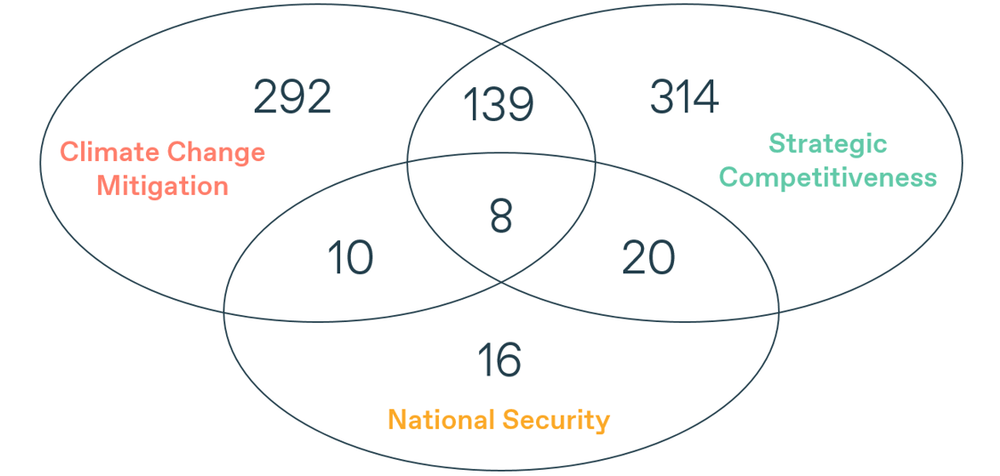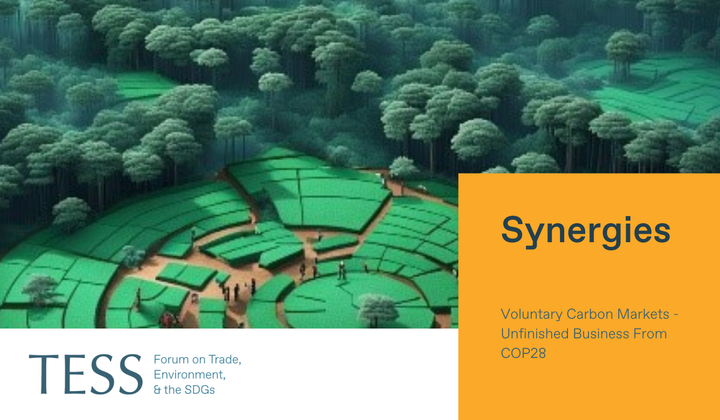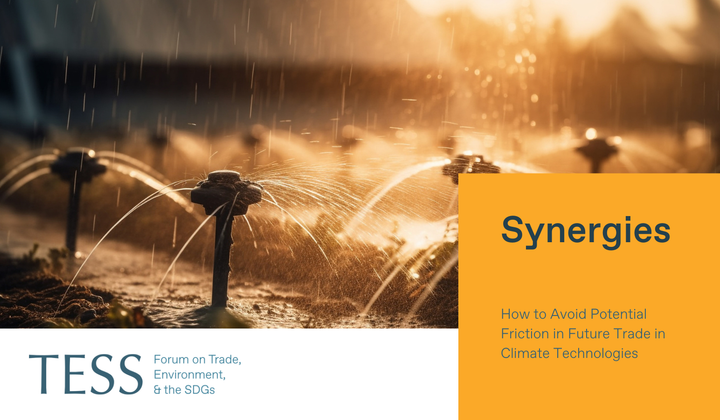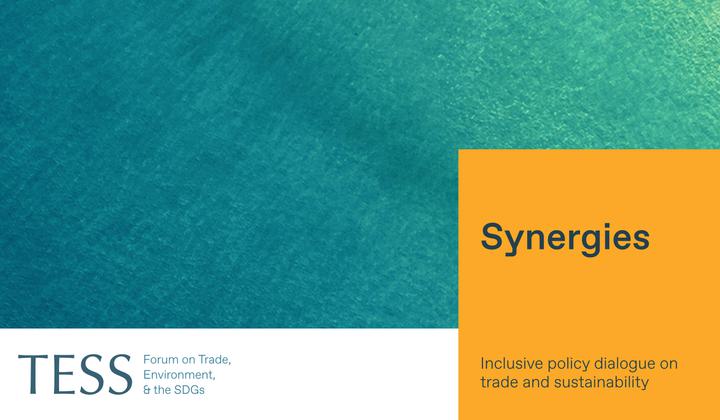A free-for-all between governments able to afford subsidies to mitigate climate change has arisen. Rather than becoming a source of trade tensions this is a huge opportunity to broaden the transparency and deliberative functions of the world trading system.
This article is part of a Synergies series on reviving multilateralism curated by TESS titled From Vision to Action on Trade and Sustainability at the WTO. Any views and opinions expressed are those of the author(s) and do not necessarily reflect those of TESS or any of its partner organizations or funders.
-----
In principle, World Trade Organization (WTO) ministerial conferences are an opportunity to “think big” about the fundamental challenges facing the world trading system and its contribution to sustainable development. Whether or not the Thirteenth WTO Ministerial Conference (MC13) lives up to this billing remains to be seen. There are no shortages of global challenges out there—top of many peoples’ list is accelerating the clean energy transition before the temperatures rise much further.
At present, governments are taking uncoordinated steps to facilitate the clean energy transition. In fact, most of those efforts are selective, favouring particular sectors and often specific firms. Done wrong these interventions appear like governments are playing favourites and can become a source of trade tensions. What is needed is transparency, accountability, and evidence-driven deliberation about which policy interventions work and which do not. The WTO is well-placed to shed light on the cross-border consequences of clean energy policies.
What is needed is transparency, accountability, and evidence-driven deliberation about which policy interventions work and which do not. The WTO is well-placed to shed light on the cross-border consequences of clean energy policies.
At the Global Trade Alert we are determined to play our part too. The New Industrial Policy Observatory (NIPO), launched in January 2024, systematically records government interventions targeted at fostering specific domestic firms, industries, or economic activities to achieve national objectives, whether economic or non-economic (such as security or environmental goals). The February 2024 data release comprises 3,092 entries of government measures taken since the start of 2023, with climate change mitigation or the transition to a low-carbon economy being the stated motive behind 564 measures. Additionally, 1,145 measures in our inventory relate to low-carbon technology products (taken here to be products such as wind turbines, solar panels, biomass systems, and carbon capture equipment), signifying technologies and products that generate fewer pollutants than their traditional counterparts and are pivotal in the transition to a low-carbon economy.*
Main Takeaways on Industrial Policies Advancing the Low-Carbon Economy Transition
1. The majority of climate-related measures are subsidies to local firms, accounting for 54.6% of policy interventions supporting the transition to a low-carbon economy or involving low-carbon technologies. Table 1 illustrates that higher per capita-income economies (“advanced economies” in IMF parlance) award domestic subsidies more often than emerging and low-income developing countries.

Table 1. Deep Pockets Likely Matter
2. In spite of the increasing attention given to national security and geopolitical factors, state financial commitments to subsidies that address climate change were notably higher. The combined value of corporate subsidies associated with industrial policy measures announced since the beginning of 2023 total $1.1 trillion, with $563.3 billion specifically allocated to objectives related to climate change mitigation. Strategic competitiveness enhancements receive a higher financial allocation, surpassing subsidies dedicated to climate-related goals.

Table 2. Total Value of Industrial Subsidies, by Stated Motive
3. Some worry that climate change-related subsidies are a cover for supporting national firms. As Figure 1 shows, over 150 subsidy awards are associated with two or more stated motives, one of which is climate change mitigation. Under these circumstances, no wonder some suspicions arise.
Among the product groups implicated by corporate subsidies, low-carbon, advanced technology, and dual-use (civilian and military) products were the most frequently identified.** The majority of domestic subsidies targeting low-carbon technologies involve products that also appear on recognized lists of dual-use items and advanced technology products (Figure 2). In light of these findings, confidence-building measures are needed.

Figure 1. Overlap Between Strategic Competitiveness and Climate Change Mitigation Subsidies Hamper Interpretation

Figure 2. Overlap Between Product Categories Hamper Interpretation
A Question of Accountability
Monitoring corporate subsidies related to the low-carbon transition is essential for comprehending the economic policy landscape, facilitating informed decision-making, fostering constructive dialogue based on alternative and potentially superior practices, and enhancing transparency to mitigate distrust and minimize trade tensions. Given the substantial financial investments in transitioning to a low-carbon economy, this monitoring process should be complemented by additional evaluations and effectiveness studies.
Governments must start articulating the outcomes expected from these subsidies—in so doing they will address two key challenges. First, robust impact evaluation is needed to identify subsidies that significantly contribute to climate change mitigation, thereby enhancing understanding of best practices and optimizing resource allocation in the future. Second, in terms of efficiency, a clear definition of measurable objectives will facilitate democratic accountability and will help sustain public trust in the huge outlays needed to tackle climate change. Failure to do so invites another populist backlash.
Foreign governments will be keen to learn whether generous corporate subsidies effectively redirect cross-border trade and investment flows in clean energy technologies and infrastructures away from their economies. To the extent that scarce R&D budgets (“innovation dollars”) are induced by subsidies to develop new technologies skewed towards the climate change challenges of societies where governments have deep pockets, then concerns may arise in nations with less fiscal space. The importance of these spillover effects needs to be established empirically. Here neutral analysts at international organizations can make an important contribution.
Monitoring corporate subsidies related to the low-carbon transition is essential for comprehending the economic policy landscape, facilitating informed decision-making, fostering constructive dialogue based on alternative and potentially superior practices, and enhancing transparency to mitigate distrust and minimize trade tensions.
Another Multilateral Contribution to Sustainable Development
Given the desire to tamp down trade tensions and discord, the WTO is the appropriate place to track climate-related industrial policies. Deliberations on ways to advance the climate-related dimensions of sustainable development by drawing upon cross-border commercial ties would then be grounded in a sound evidential base. Actual practice—rather than teleological considerations—would then become the currency of trade-and-climate-change discourse. From this due consideration could be given to potential reforms of the WTO Agreement on Subsidies and Countervailing Measures and any other multilateral accords demonstrated to be holding back the transition to a low carbon economy.
* The definition of low-carbon technology products comes from the IMF Climate Change Dashboard and includes mechanisms such as wind turbines, solar panels, biomass systems, and carbon capture equipment.
** The definition of dual-use or national security-related products comes from the Export of Commercial or Dual-Use items (EAR) by the US Department of Commerce Bureau of Industry and Security.
-----
Simon J. Evenett is currently a Professor of Economics at the University of St. Gallen and on 1 August 2024 will join the Faculty at IMD. He is also the Founder of the St. Gallen Endowment for Prosperity Through Trade.
Fernando Martin leads the Analytics Unit at the Global Trade Alert.
-----
Synergies by TESS is a blog dedicated to promoting inclusive policy dialogue at the intersection of trade, environment, and sustainable development, drawing on perspectives from a range of experts from around the globe. The editor is Fabrice Lehmann.
Disclaimer
Any views and opinions expressed on Synergies are those of the author(s) and do not necessarily reflect those of TESS or any of its partner organizations or funders.
License
All of the content on Synergies is licensed under a Creative Commons Attribution-NonCommercial-ShareAlike 4.0 International (CC BY-NC-SA 4.0)
license. This means you are welcome to adapt, copy, and share it on your platforms with attribution to the source and author(s), but not for commercial purposes. You must also share it under the same CC BY-NC-SA 4.0 license.
If you would like to reuse any material published here or if you have any other question related to Synergies, send an email to fabrice.lehmann@graduateinstitute.ch.





